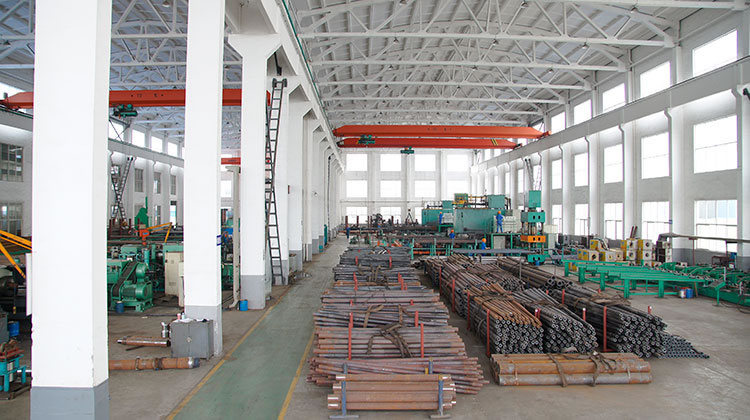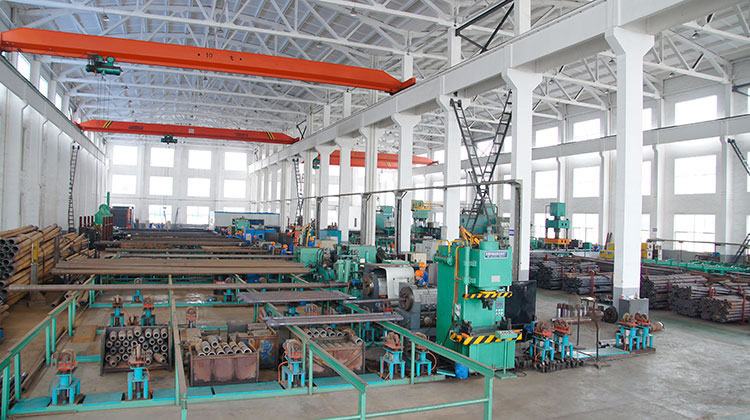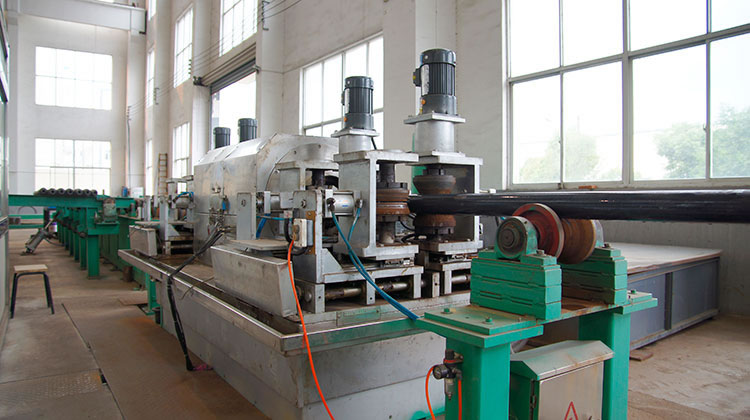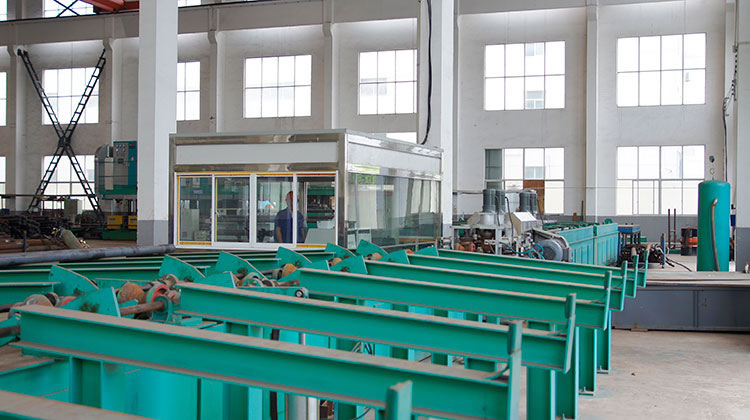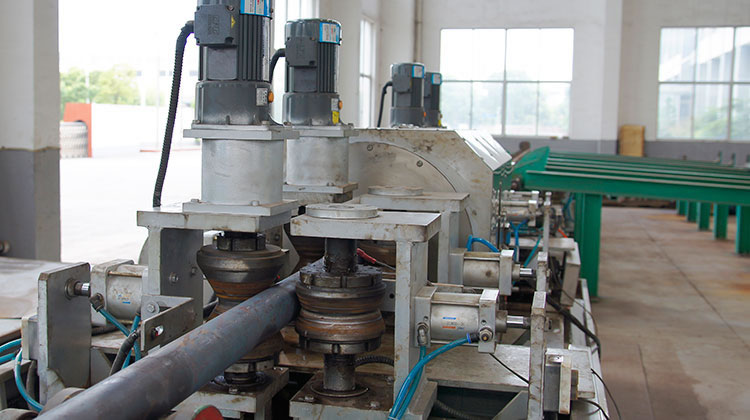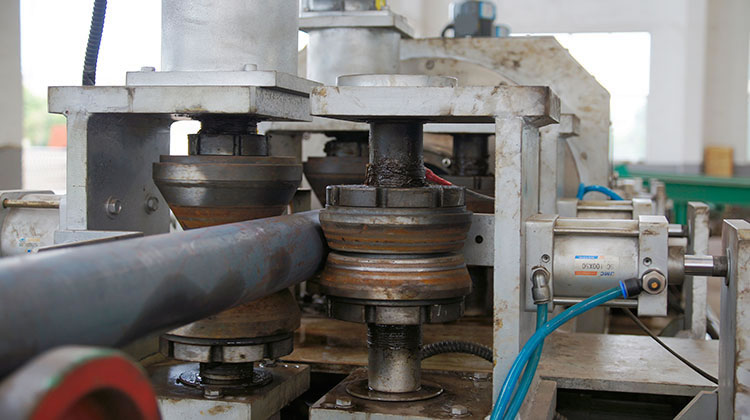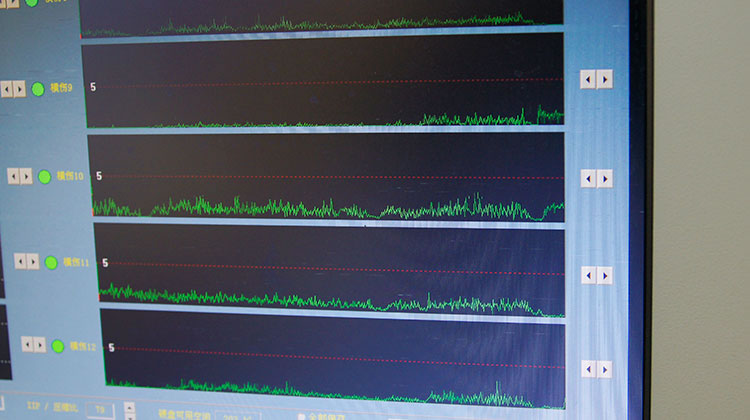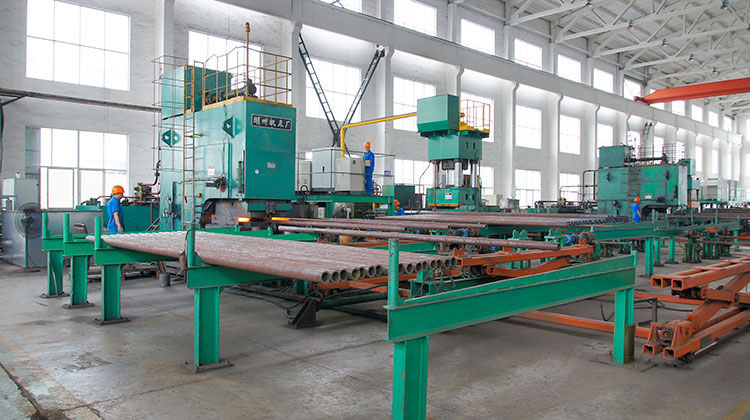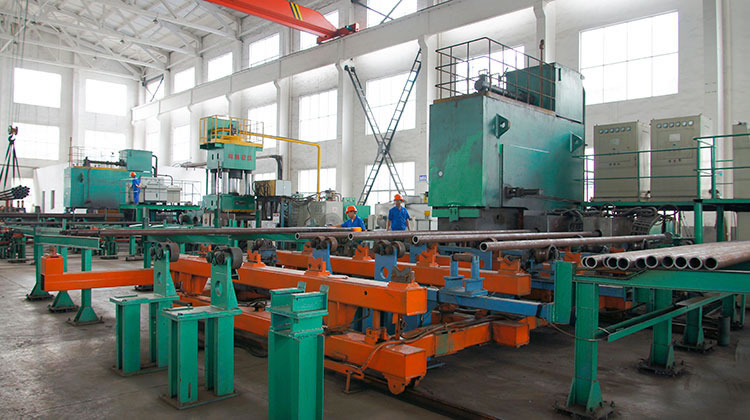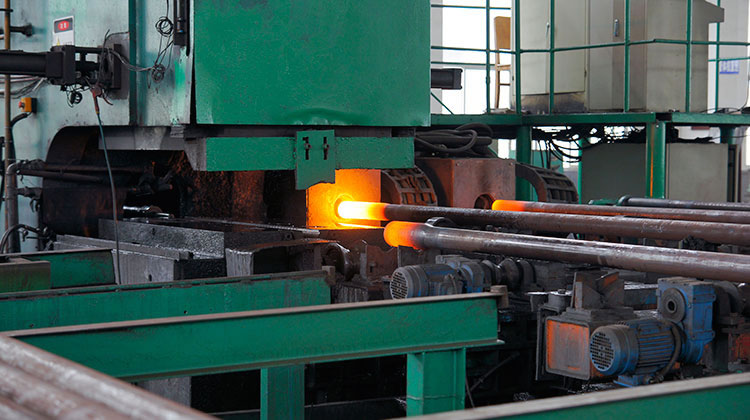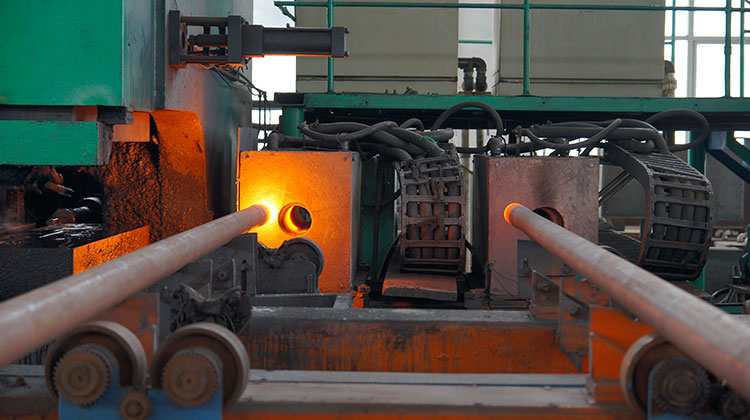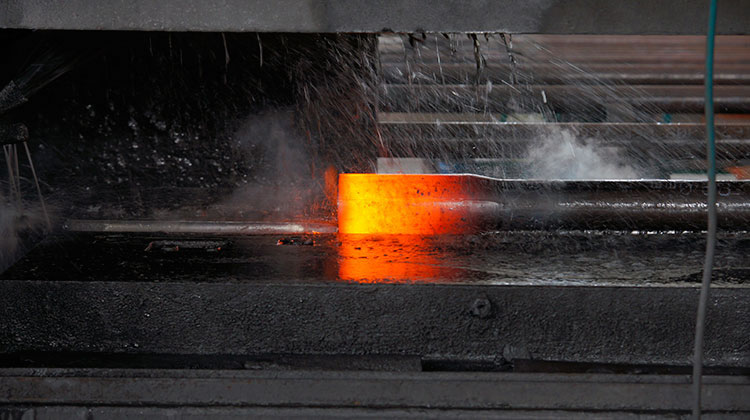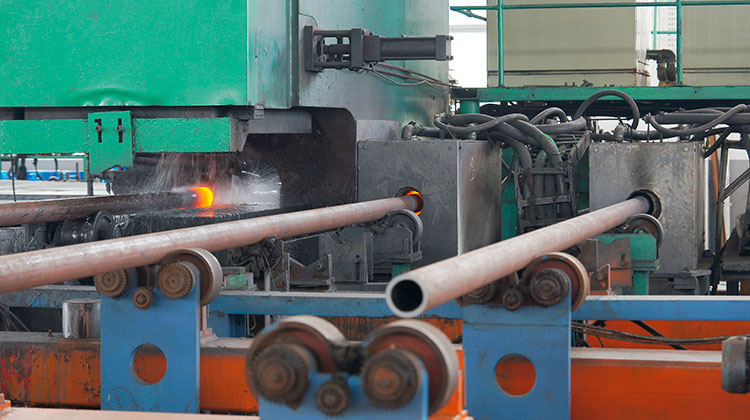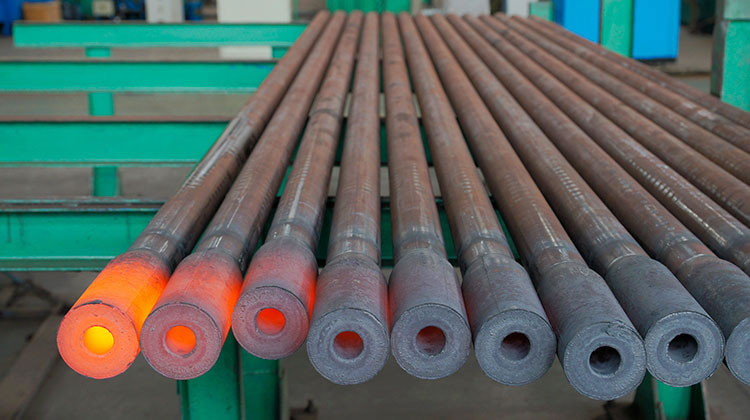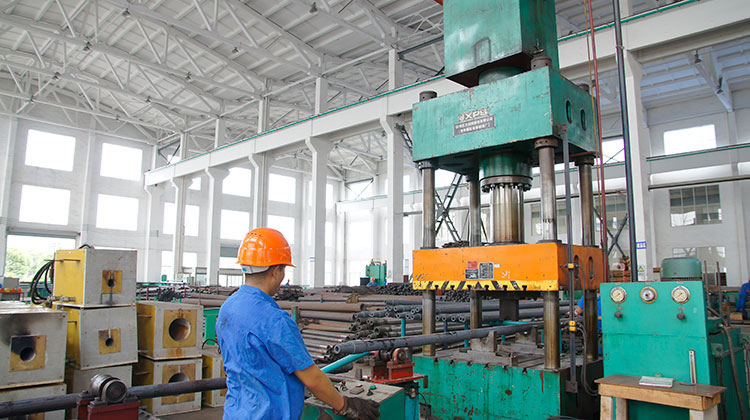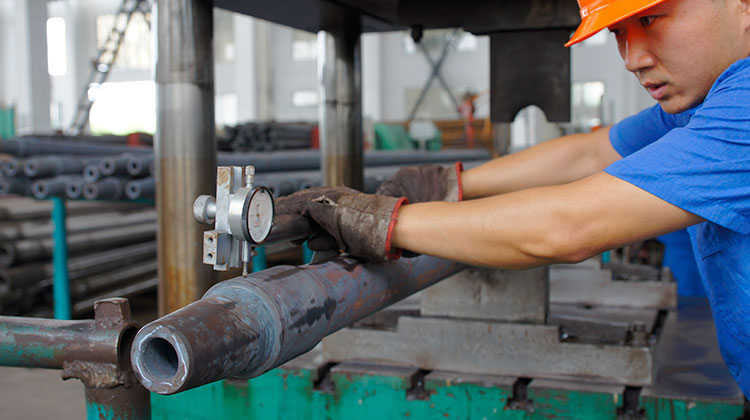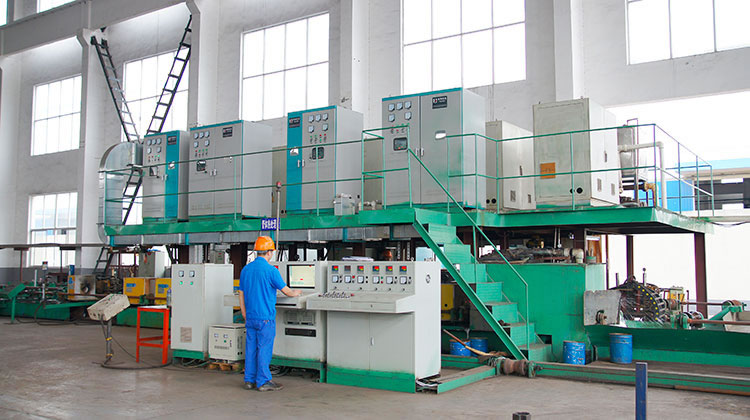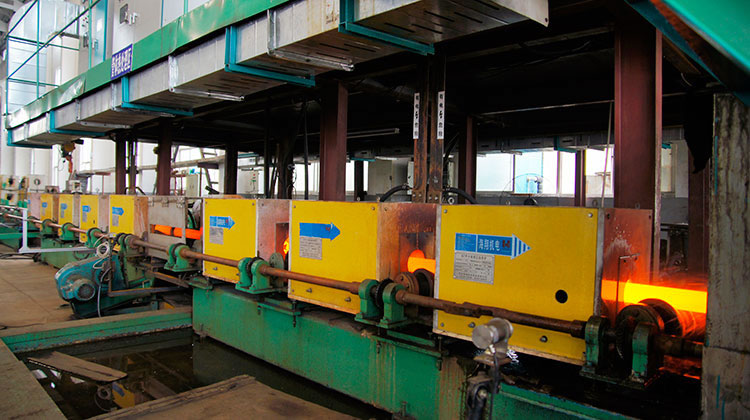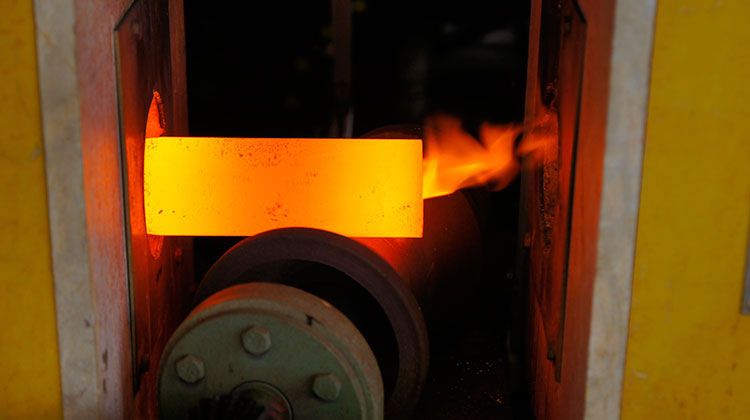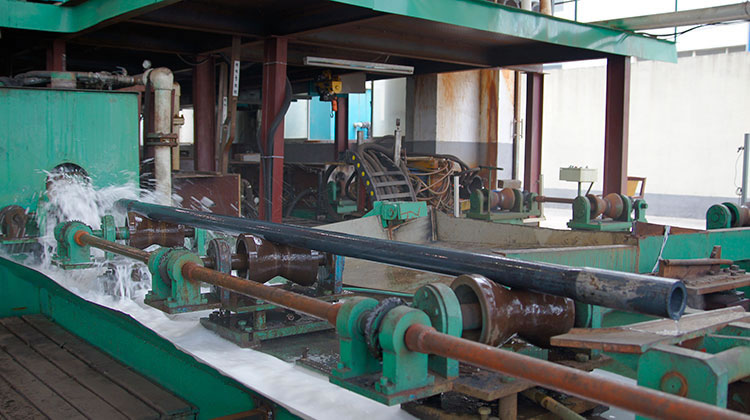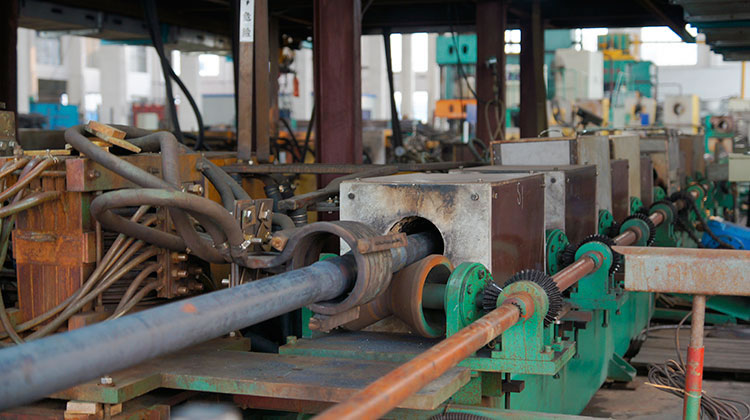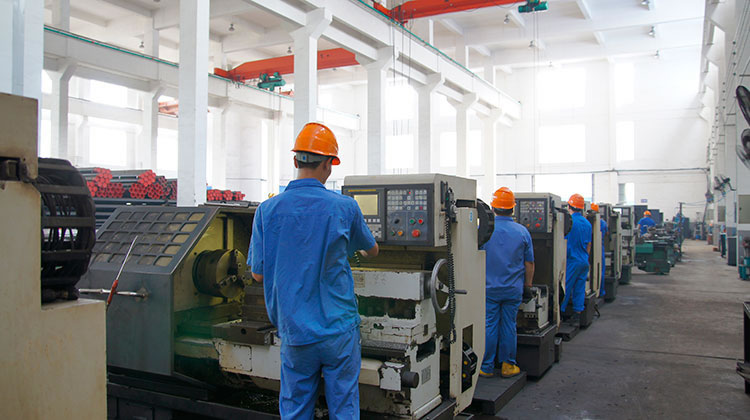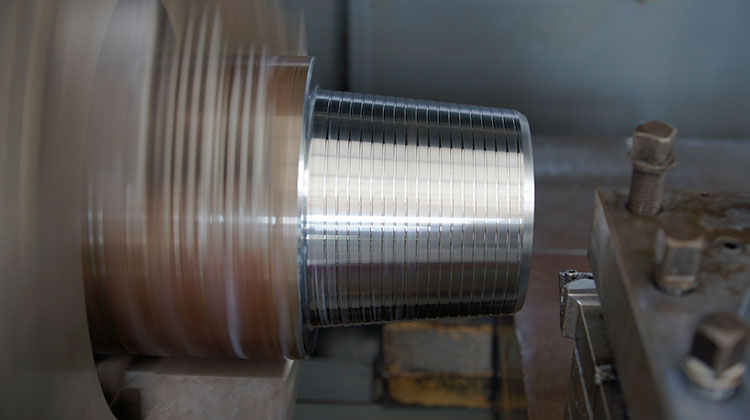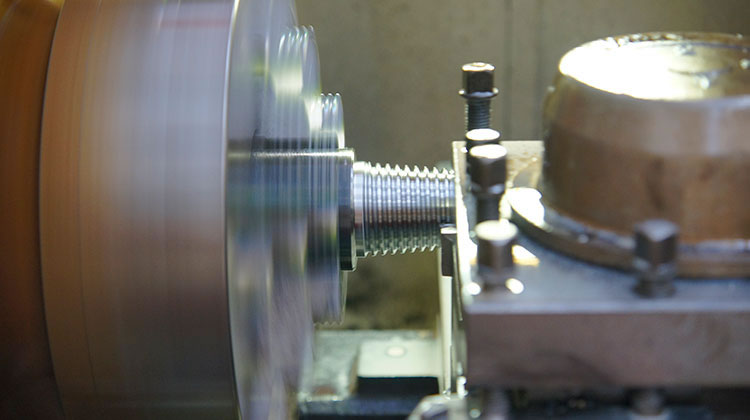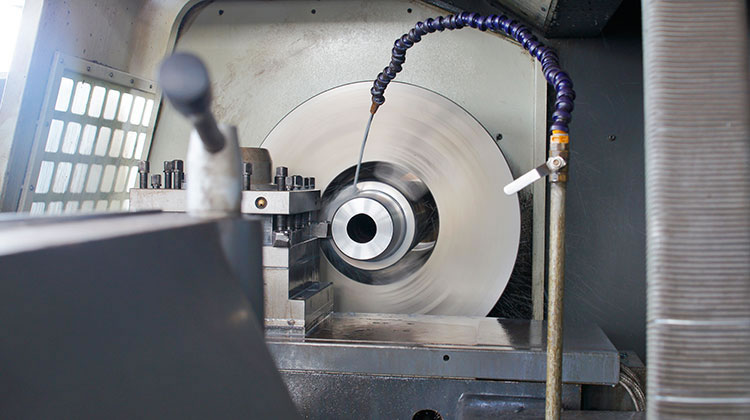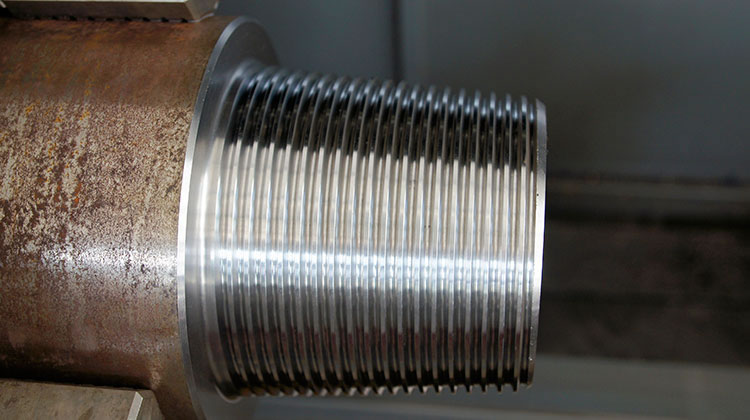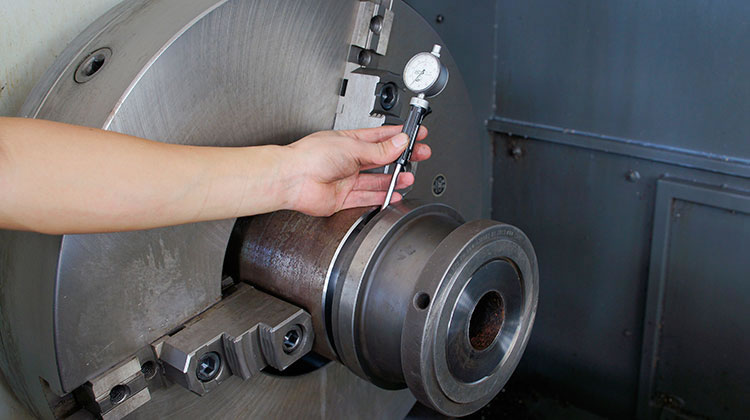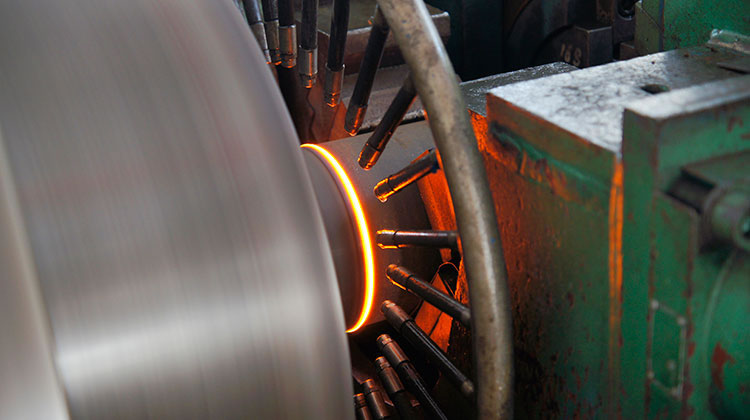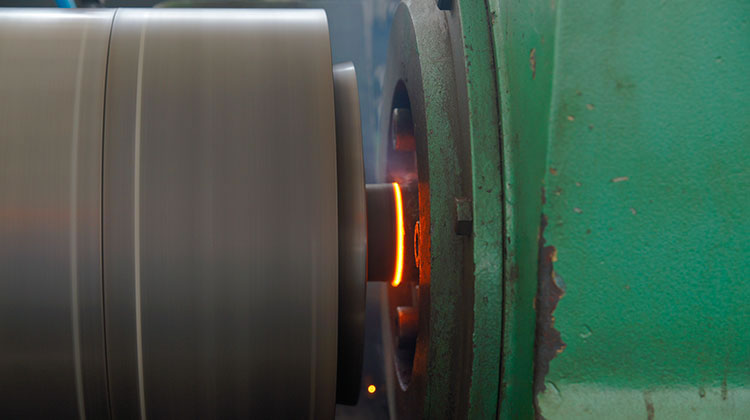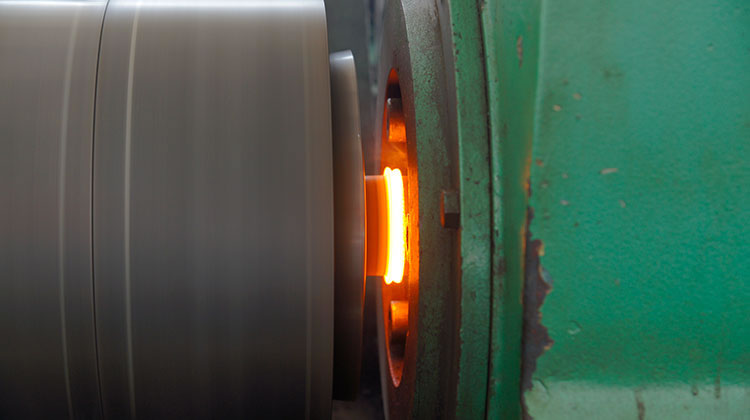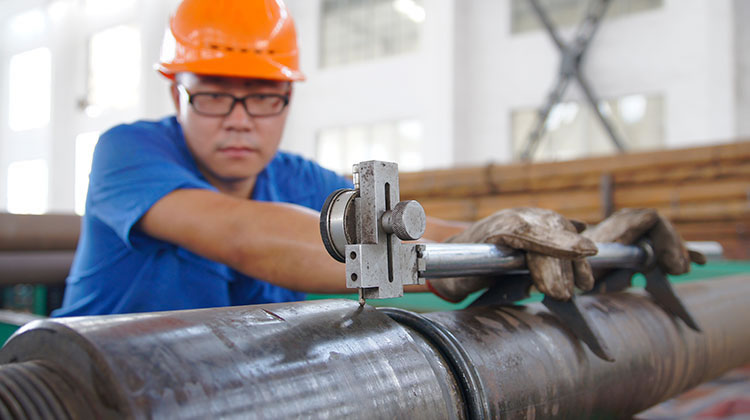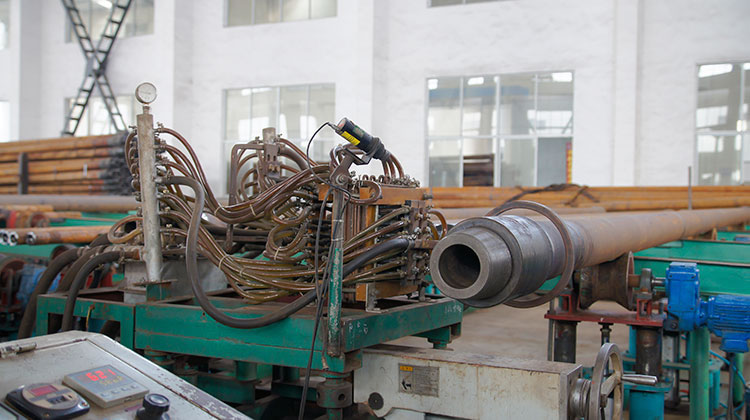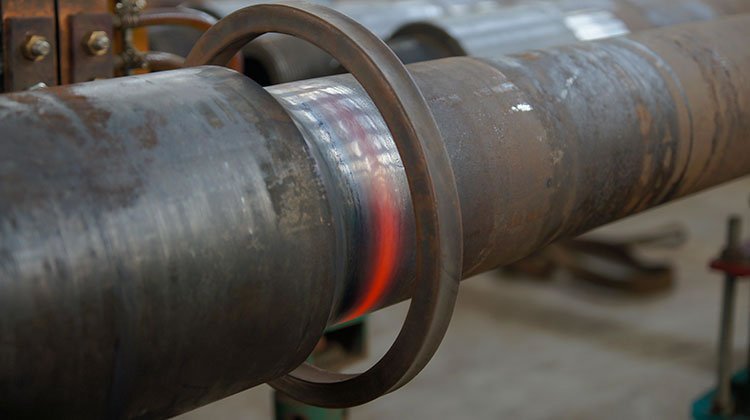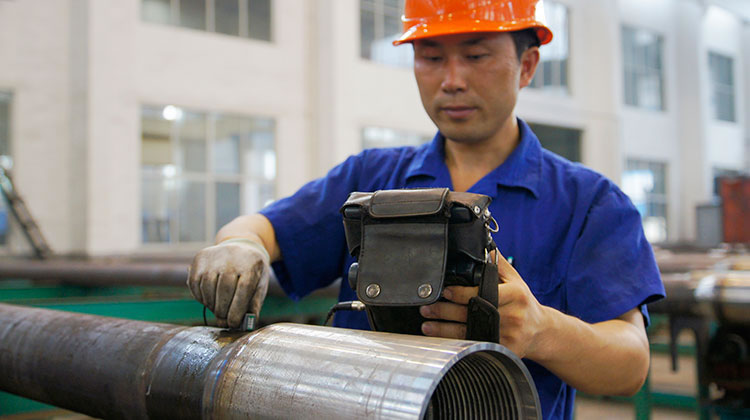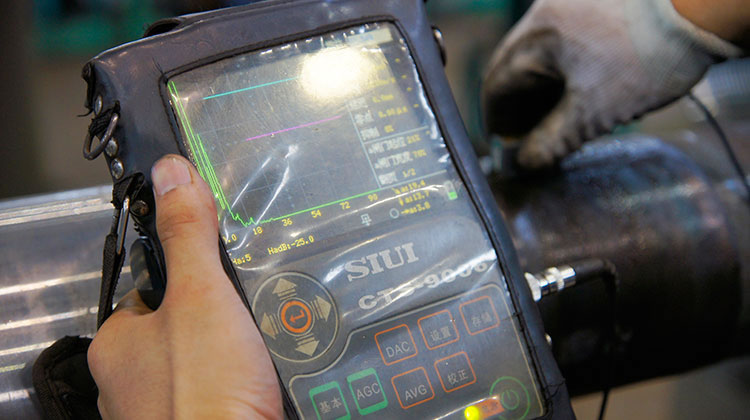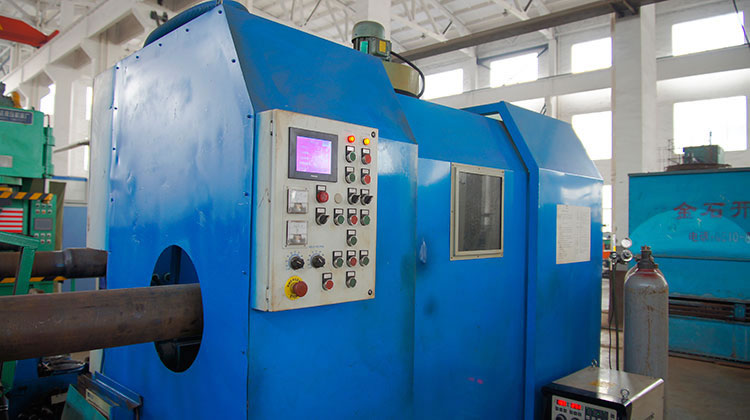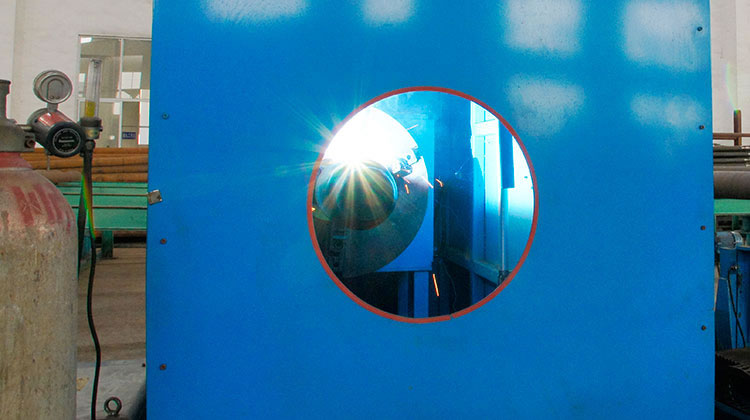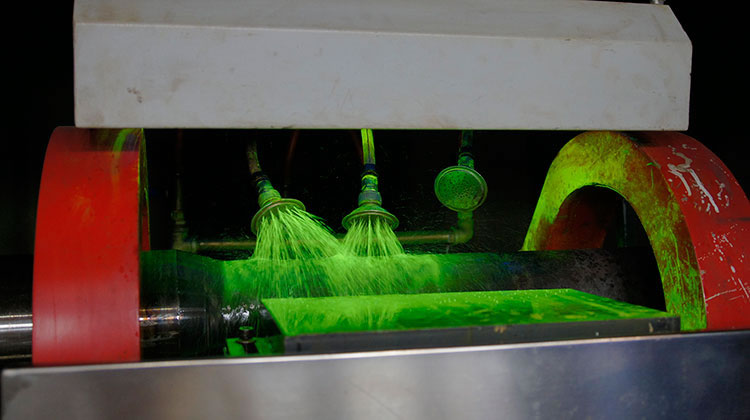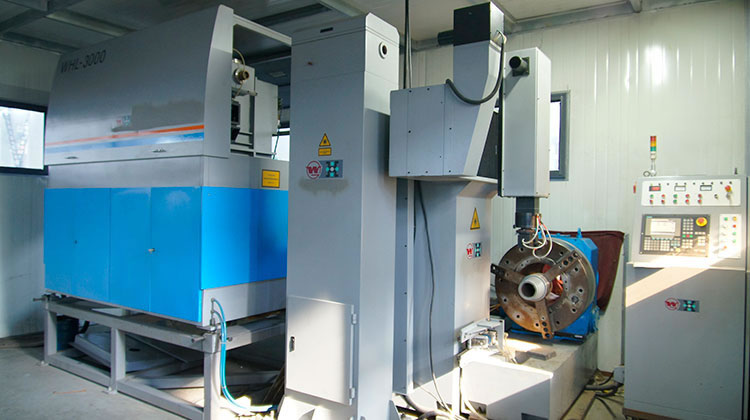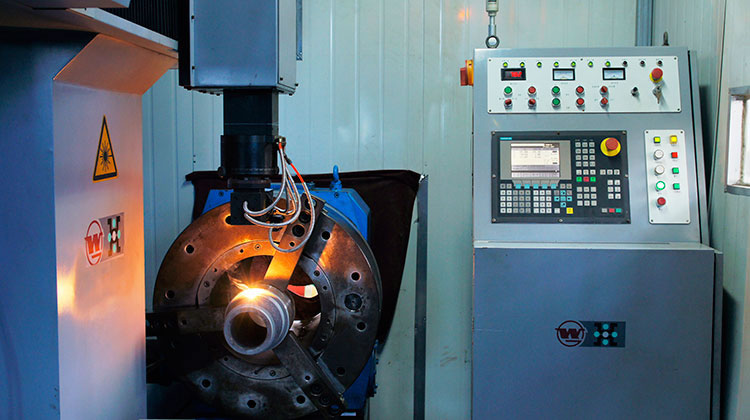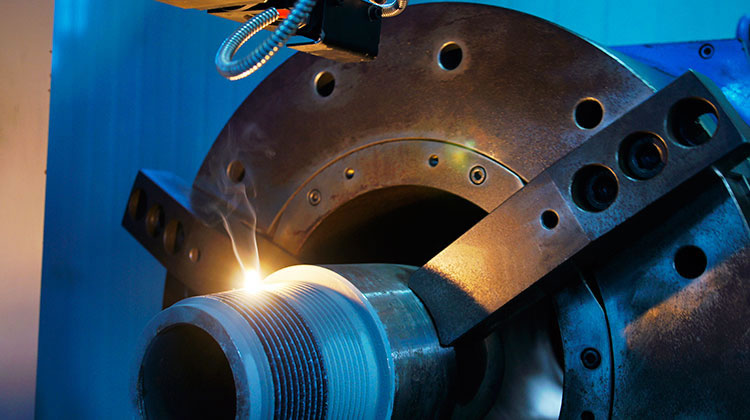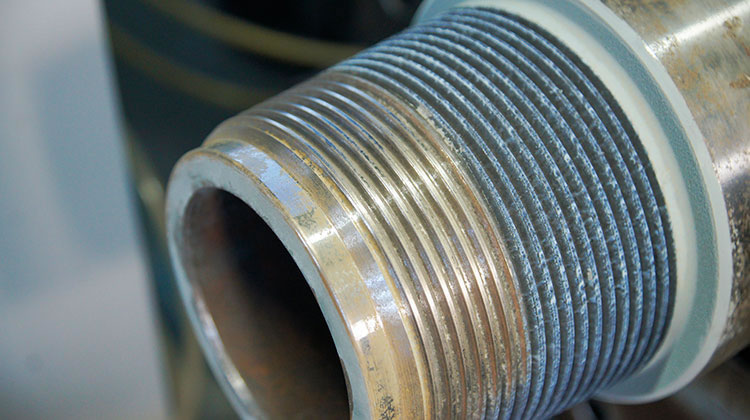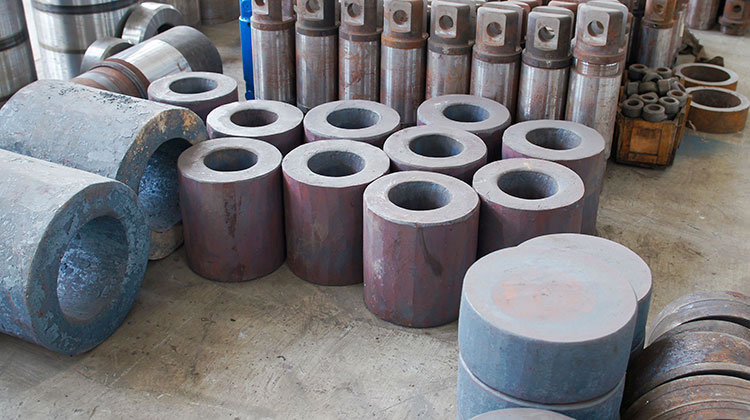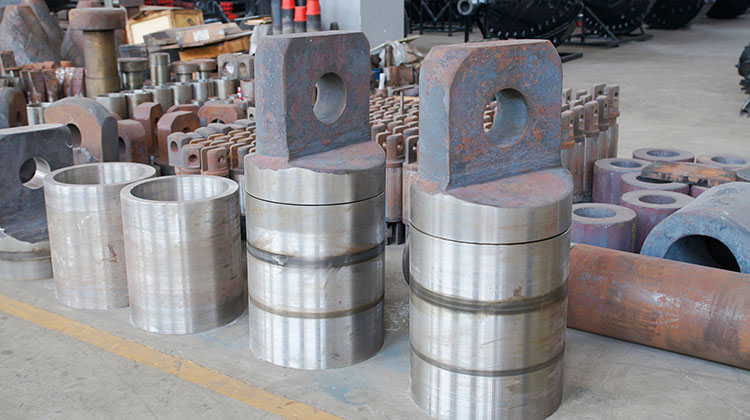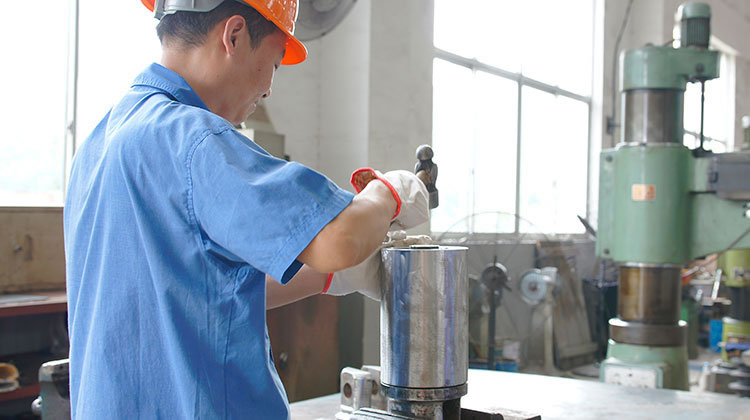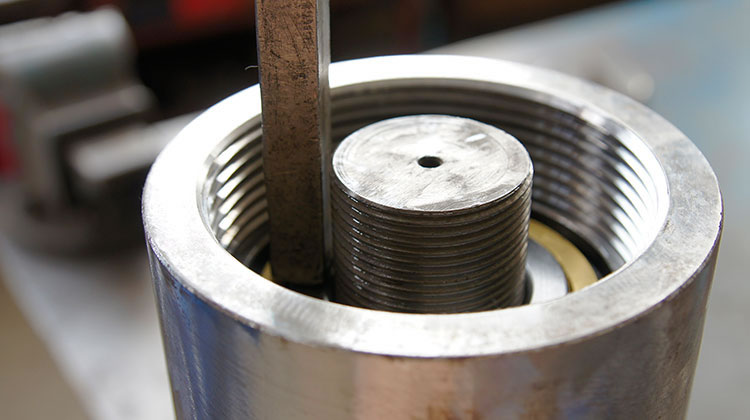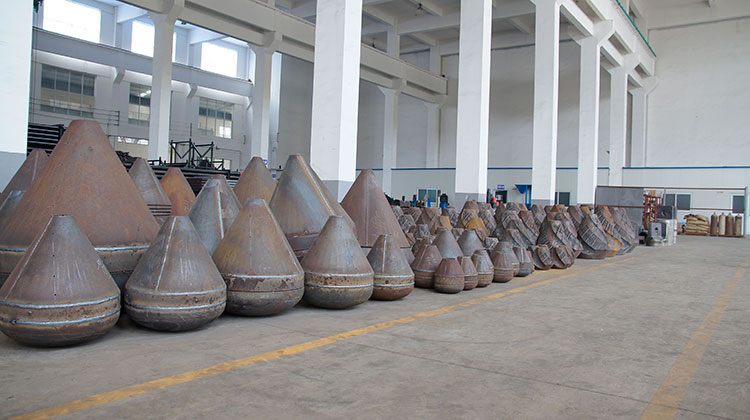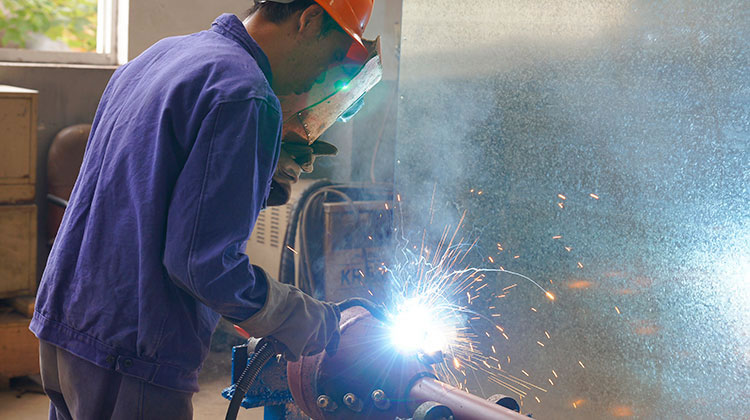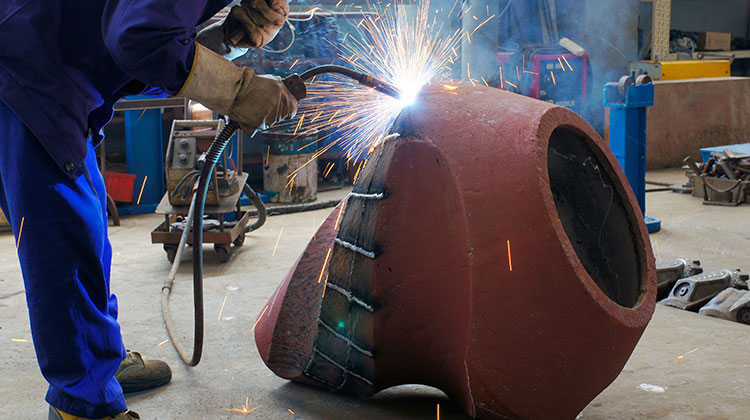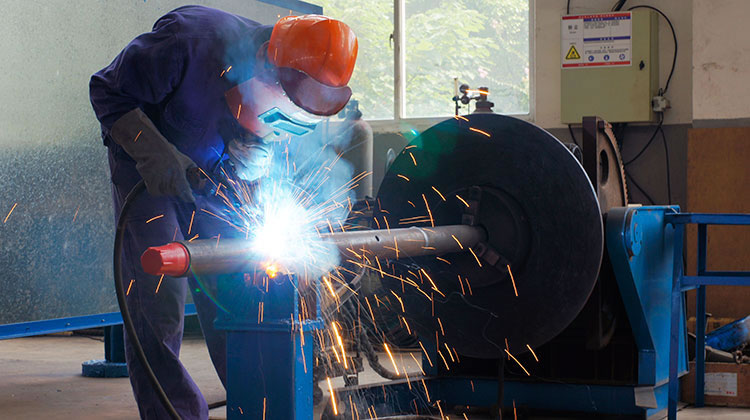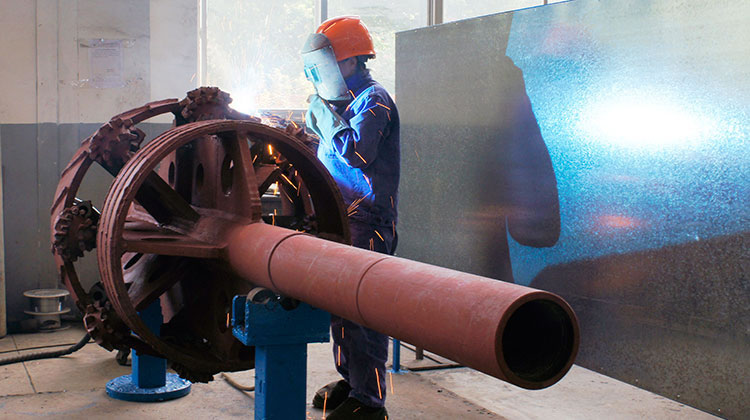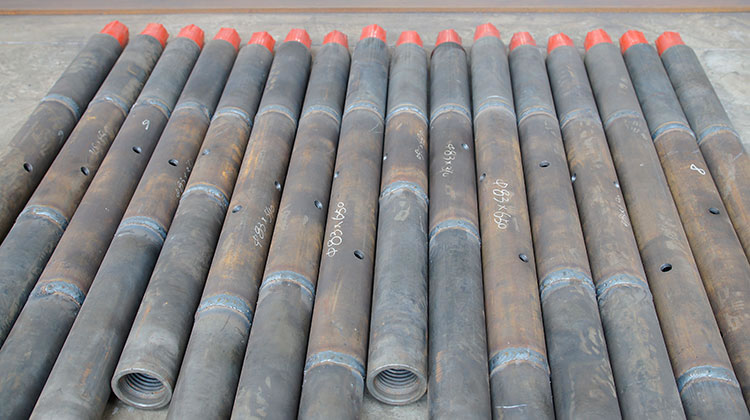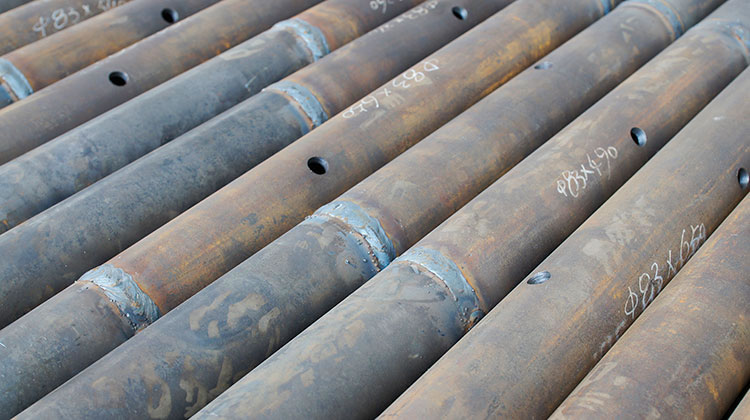Now we would like to show you the manufacturing of three different types of drilling tools, including drill pipes, reamers and actuators.Wuxi Kiatong is very proud of our two drill pipe production lines which are considered the most advanced in China. They support a production capacity of up to 150,000 drill pipes each year. We use only API-compliant quality petroleum pipe as the raw material. An ultrasonic detector is utilized to perform 100% flaw detection on pipe materials. These hydraulic pipe thickening machines are available in capacities of 630 tons, 800 tons and 1000 tons. They take advantage of medium-frequency heating technology to produce pipes in diameters of 30mm to 290mm. Those pipes featuring thickened walls must undergo a straightening procedure.
This will ensure the concentricity of each and every drill pipe. Our pipe quenching and tempering line is the first line providing heat treatment of drill pipes in China. This entire line works expediently and features low oxidation loss by using a medium-frequency furnace. After heat treatment is complete, the pipe now possesses a uniform metallographic structure and stable performance. The high-precision CNC lathe operates on the end of the drill pipe or the thread of the connector. It handles a wide variety of threads on workpieces according to API standards. It will also process non-standard threads varying in diameter from 42mm to 300mm. The 600T friction welding machine can handle a maximum diameter of up to 300mm. It is the first welding machine in China featuring a large diameter. It provides a consistent-quality weld while ensuring greatly-improved welding efficiency after thermo-mechanical treatment. Next, we carry out a medium-frequency heating and weld tempering procedure, which means the weld will be tempered at a high temperature in order to eliminate cold cracking.
Additionally, ultrasonic detection is done on the entire pipe, which ensures against micro cracks on the pipe. The drill pipe hardbanding welder utilizes fully-automatic preheating and hard facing techniques, which result in a uniform width and thickness of each and every weld. This technique has been certified by the American company ARNCO. We also have testing equipment for penetrant flaw detection or magnetic particle inspection that guarantees quality welds of our products. Laser quenching is conducted to form a hardened surface layer of martensite. It is an environmentally-friendly, clean and fast processing technique. It allows the hardness to be increased by 1-5 HRC when compared with induction hardening technique.
Our extensive range of actuators is available in capacities from 10 tons to 500 tons and tensile strength from 98KN to 4900KN. The actuators with capacities from 10 tons to 90 tons are designed with custom-made angular contact ball bearings. The actuators with capacities of more than 100 tons come with top-grade thrust cylindrical roller bearings. The housing of the reamer is roll-formed by high-strength steel plate. The rotary cutting and cone welding procedure is performed on the wear-resistant band with hardness of more than 55 HRC as well as the cemented carbide tips.
Hydraulic pipe end expanding equipment
With a full range of 200t, 560t, 630t, 800t, and 1000t hydraulic pipe end expanding machines, we are able to widen pipe ends with a diameter range of 30mm-290mm. The dies are manufactured by Caston from forging and heat treatment, featuring high temperature and wear resistance. The thickened and forged pipes are in line with API standards.
Intermediate frequency heating furnace
Before forging, the pipes will firstly be heated for an ideal temperature. Intermediate frequency heating technique is adopted because it allows for uniform temperature control and no over burning phenomenon. The temperature will rise to the desired point in a short time.
Quenching and tempering line for pipes
Heat treatment (quenching and tempering) is a vital process in producing drill pipes. Our heat treatment line is the first intermediate frequency heat treatment line for drill pipes in China. It incorporates quenching line, tempering line, and auto control system.
High-precision CNC machining line
We employ high-precision CNC lathes to process drill pipe end and threads. Processing for screws of any workpieces in line with APIC standards will be met here. Besides, Caston produces custom non-standard screws with a diameter of 42mm-300mm. The high-precision CNC lathes will powerfully guarantee the smoothness and pitch of the screws.
Friction welding machine works relying on the inertia friction welding principle, being able to intelligently sense the welding parameters and heating the contact point of the 2 workpieces at an amazing speed. After a desired temperature has been met, the machine will weld the 2 parts together stably and reliably.
Intermediate frequency tempering for seams
Tempering for seams is used to eliminate the cold cracking tendency of welding seams. The intermediate frequency technique is adopted for its high heating efficiency, uniform heating result, and small radiation region, ensuring that the pipes’ mechanical properties reach API standards.
Laser quenching technique is a formation process of hard martensitic layer on the steel surface, during which the laser quenching machine causes a phase change of the steel material by heating the steel surface fast with focused laser beam. This technique is adopted because it features large power density and high cooling speed. It is clean and consumes no cooling medium.
Compared with induction hardening, flame quenching, and carburizing quenching techniques, laser quenching is distinguished for more uniform hardened layer, whose hardness is generally HRC 1-5 higher than that with induction hardening treatment. There is little deformation on the workpieces. The depth of heating and heating track is controlled fully automatically. The laser quenching technique is applicable in hardening the screws of large drill pipes to extend the pipes’ life.
Actuator assembly
Caston actuators are available in capacity from 10t to 500t. Their tensile strength ranges from 98KN to 4900KN. For actuators with a capacity between 10t and 90t, we adopt high-performance angular contact ball bearings; actuators whose capacity is over 10t are equipped with cylindrical roller thrust bearings. Cases and shafts of all of the actuators are made from high alloy steels having been given heat treatment. High-temperature lithium-based grease is adopted for lubrication.
Reamer welding
The cases of our reamers are rolled and formed from high-strength steel plates. High-hardness flux cored wires and tungsten carbide cutters are spread on the case surface. Different parts of the reamer are connected by butt welding, in which process CO2 welding technique is used to enhance the strength of workpieces. The hardness of our reamer is over HRC55.
Wuxi Caston Drill Tools Co.,Ltd.
Add.: No.89 Zhenhubei Road, Wuxi City, Jiangsu province, P.R. China
Tel.: +86-510-85066207
Fax: +86-510-85066207


